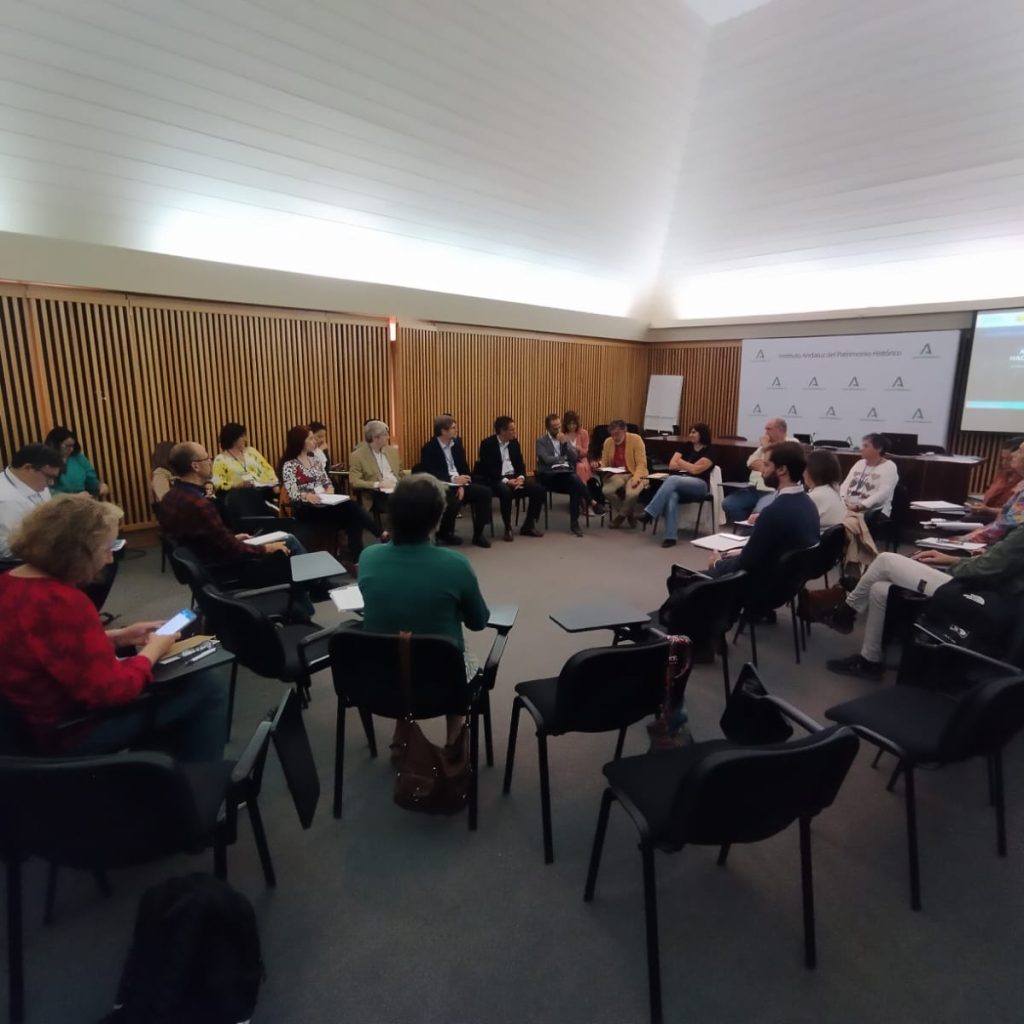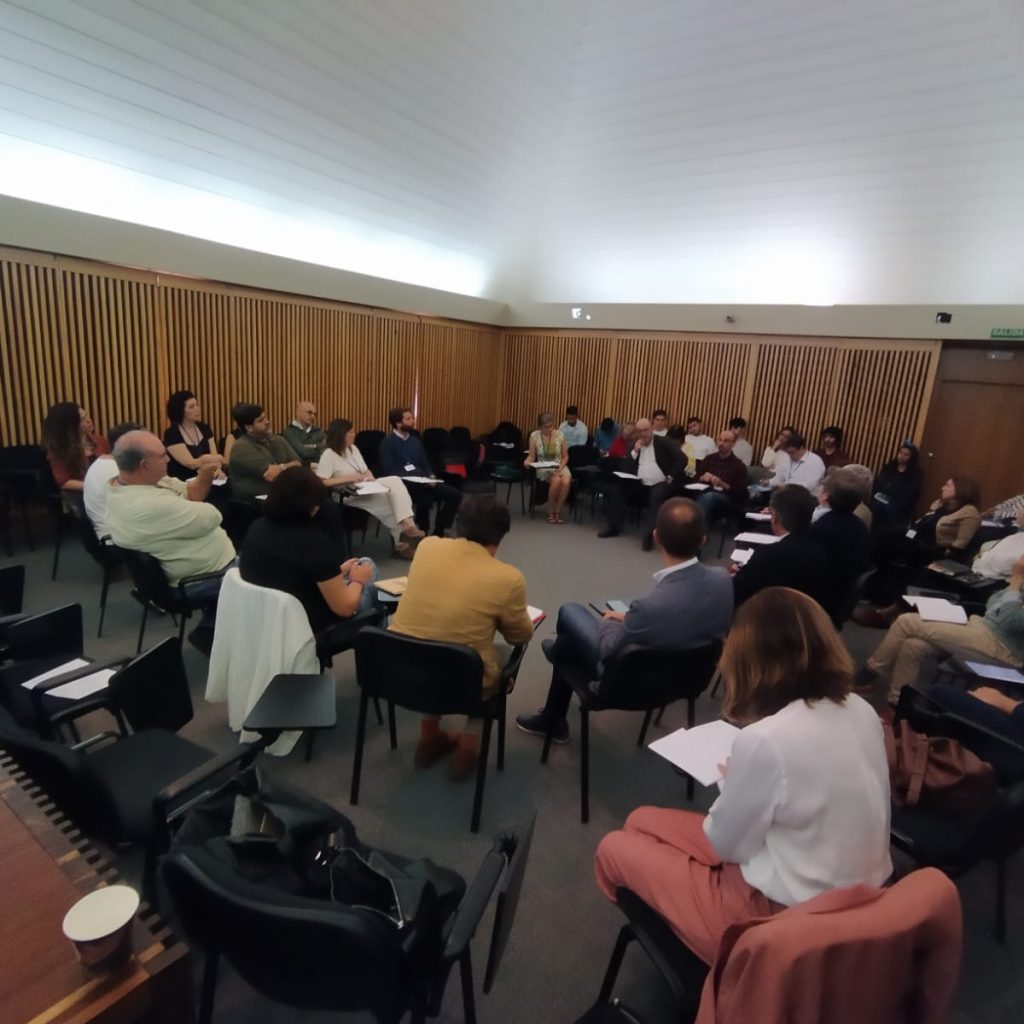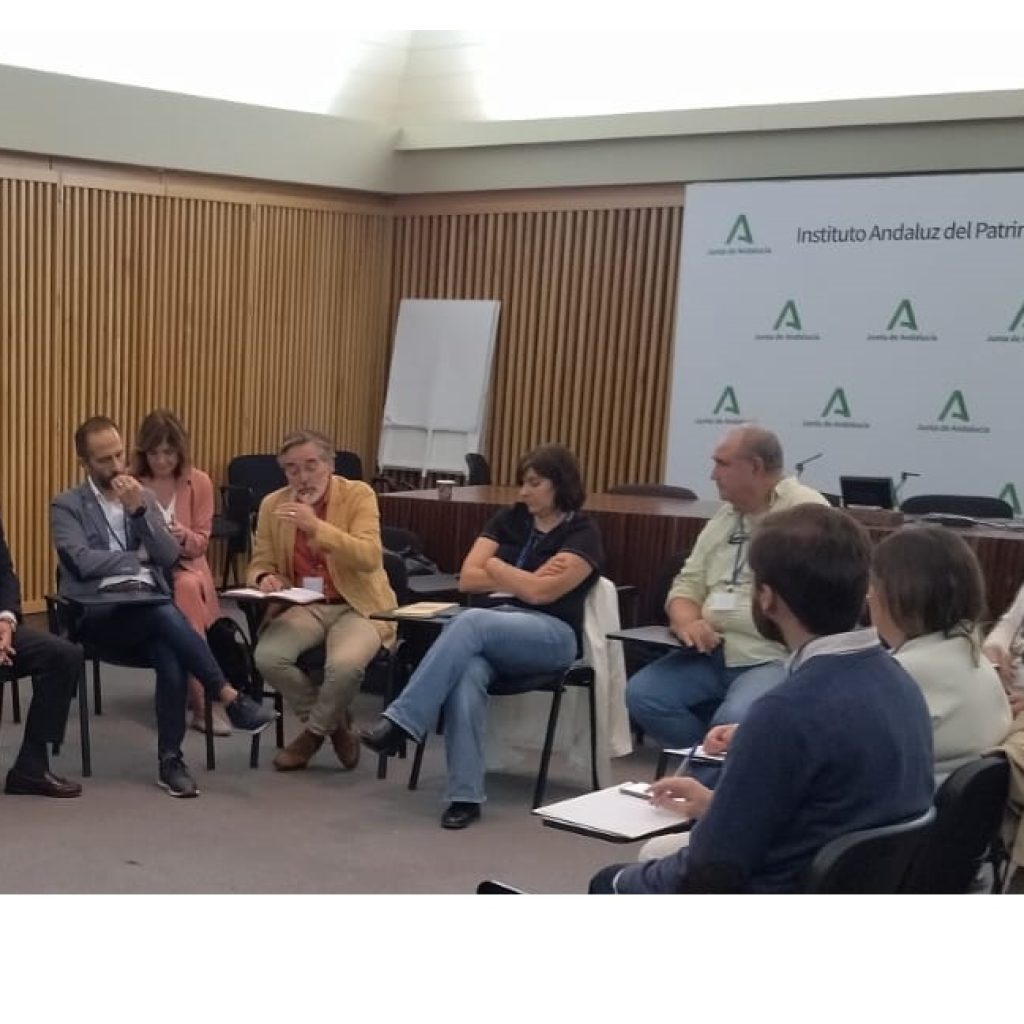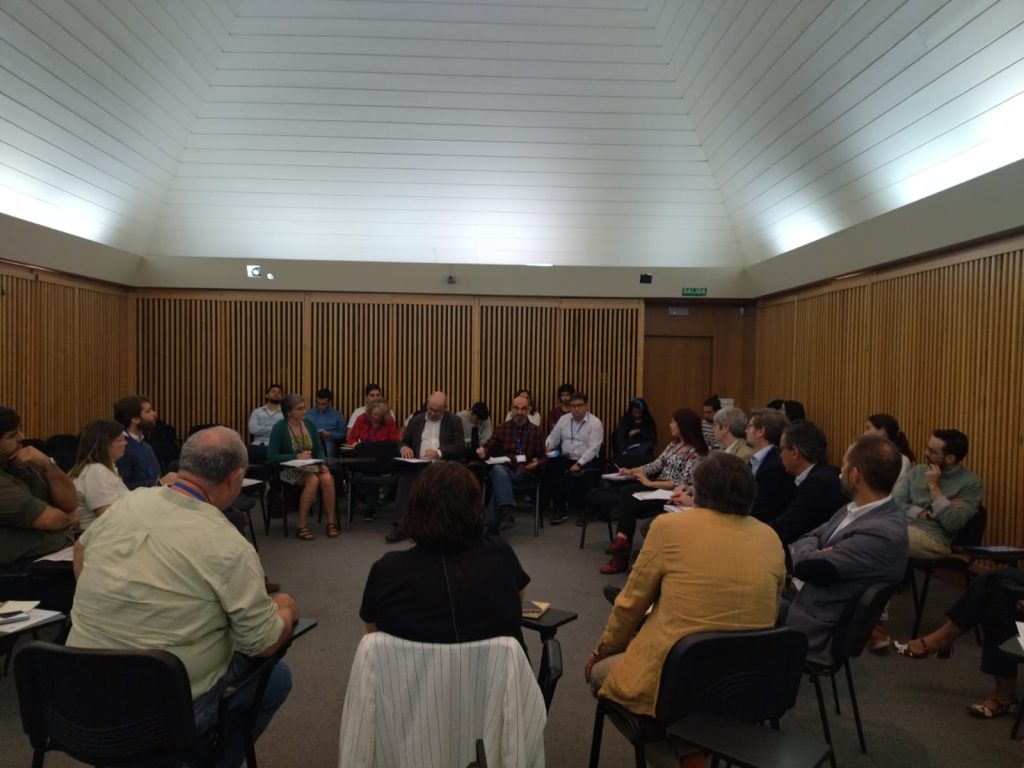In order to generate a plural and diverse reflection, from the different positions of the guests invited to the “Seminar on Energy Transition in the Iberian Peninsula”, had the opportunity to discuss several issues that are part of the process of changing the energy model we are attending.

General Plan Round Table. Attended by: Joaquín Villar Rodríguez – Agencia de Andaluza de Energía; Marina Torres & Joaquín de Ory – Delegación Territorial de Economía, Hacienda, Fondos Europeos y de Industria, Energía y Minas en Sevilla. Servicio de Energía; María del Carmen Romero – Asociación Andaluza de Comunidades Energética (ANCE); José Fernando Robles del Salto – Asociación Agraria de Jóvenes Agricultores (ASAJA); Alfonso Vargas Vázquez – Asociación de Energías Renovales de Andalucía (CLANER); Pedro J. González Rejinfo – Asociación Hacia las Energías Renovables del Sur (HERES); Bosco Valero – ENREDCOOP. / Escuela Andaluza de Economía Social; Juan Manuel Rosauro Valenzuela & Laura Raggio Garvayo ENEL – ENDESA; Pablo Gómez Falcón – COAGENER; Juan Carlos Expósito Pérez – Comunidad Energética Local Toda Sevilla; Cristina Arcos Fernández – Comunidad Energética Jalea-Luz; María Perea Mediavilla – Comunidad Energética Torreblanca Ilumina; Catarina Pereira – Proyecto Coopérnico; y Estudiantes del Máster de Gestión del Territorio – Universidad de Sevilla.
In general, the exchange of ideas, concepts and experiences focused on exploring areas such as: just transition, adaptation towards production from decentralized models, the approach between sustainability and profitability linked to social interest, social linkage and citizen participation, social innovation within the transition, as well as production and consumption practices, adaptation to policies and regulations on renewable energies. Without leaving aside the question about the position played by energy marketers and producers, the vision of public administration and institutionalism including new functions and roles from the Community Transformation Offices, the Energy Communities, together with other social agents such as the Academy and the third sector that have also been linked to the transition.

The reflection agreed among the participants:
The need to create and maintain these spaces for interaction, because they are an opportunity for listening about the different versions, and, also, to generate some links, approaches and common learning.
The dynamics of the meeting posed questions on the above mentioned topics, so that each participant could contribute some ideas to the dialogue.
Based on the reflections expressed, the following points can be highlighted:
- The moment of the Energy Transition focuses on progress in adopting the policies and guidelines of the agenda of the Council of the European Union with a view to decarbonization and energy efficiency. In this scenario, there are several conditions to be considered, differentiated for each actor: regulatory, organizational, administrative, technical, social, cultural, economic, among others. However, while the social agents carry out actions to initiate their own formation and constitution processes, the business sector seeks to maximize energy efficiency based on competitive generation models, which ultimately promote shared value links with society.
- Renewable energy production models seek efficiency and are the new paradigm. Decentralized and distributed production is encouraged, with self-consumption practices, although large projects prevail because they have greater implementation facilities (financing, authorizations, promotion, among others); the interpretation of the Academy is that in the Iberian Peninsula it seeks to generate competition to sustain small projects against large ones, which implies a type of energy market based on traditional relationships, as well as disparate benefits, limitations and expectations.
- Social innovation seeks a fair and democratic transition, with a participatory model where the multiplicity of actors involved is a synonym of efficiency and sustainability: Energy Communities are figures of social-community organization within the transition. However, the debate is articulated on the role of these actors in: production and consumption, or prosumption -market subjects-, in active participation in energy policy -governance and democratic processes-, in business models and democratic economies -with the adoption of cooperativism-.
- Social participation is the organic base for enrolling energy communities in this new energy model, accessing the fields that have been established in the regulations or in the practice of social cohesion with the implementation of projects. From this perspective, the conditions of participation have been adapted for the integration to the projects, not as a generative interest of proposals and baseline social organization, but as a form of linkage with the purpose directed to obtain acceptance or participate in the new business models. The social actors debate about the democratic conditions of the projects, while the business sector provides solutions on joint collaboration.
- Necessary conditions from every perspective are the need for training, information and binding activities to access these spaces, with the intention that there is an understanding for effective participation, a real management of expectations and an opportunity to create real actions.
- In all these contexts, the public administration seeks to accompany and clarify some emerging scenarios that occur in compliance with established regulations. This sector, like the others, is interested in promoting a transition process framed to meet the objectives and goals coming from regional directives and national planning.
Broadly speaking, the dialogue showed the perspective of each actor, focusing the proposed theme for their particular experience, where their interests, concerns and solutions adopted in the transition scenario are clearly differentiated.
Dr. Ricardo Iglesias-Pascual, who moderated the table, reflects on the starting point from the review of the eminent socio-technical character of the Energy Transition, going beyond the academic field to register from the pragmatic point of view and the different positions found in the forum.

His reflection:
The eminent socio-technical character of the Energy Transition (ET) is an irrefutable fact but one that sometimes seems to be framed within the realm of mere academic reflection. The eminently economicist and productivist character that is characterizing the TE is often reflected in the unstoppable emergence of macro photovoltaic or wind power plants that irrigate our landscapes. In this sense, ET is beginning to look like a mere substitution of a centralized and hierarchical model based on fossil energy for one of similar characteristics based on electric energy and the emerging “green” hydrogen.
Faced with this apparently uncontrolled and socially vertical growth of renewable energy-related infrastructures, there is a need for forums for reflection and the sharing of ideas such as the one that took place at the seminar organized as part of the STEP project.
In this forum, the conceptions of TE of social agents, companies and the public administration were put on the table. Despite the cordiality and friendliness of the debate, it is evident that companies feel in a very different position to that of the social agents, faced with the observation of a public administration that tries to guide the process. Normally by outsourcing the process through a Community Transformation Office with few means or by helping cases in neighborhoods in extremely complicated socioeconomic situations. Actions where it is not clear if the will is to help in the way out of social and energetic vulnerability or to set up a social laboratory. The mere fact of the divergent perception in which the participating groups perceive the moment in which each one of them finds themselves within the TE serves as an example of this situation.
The attitude of some social agents who feel that they are at an early stage of TE contrasts sharply with the feeling of a business sector that considers that significant progress has been made in its development. Differences such as this, or the conception of participation or the social agent as a client or mere consumer, reinforce the importance of maintaining meeting points such as the one developed in this seminar.


